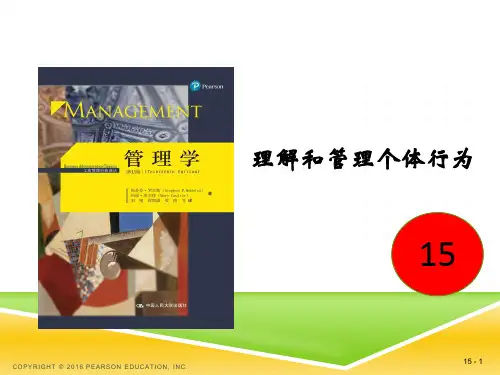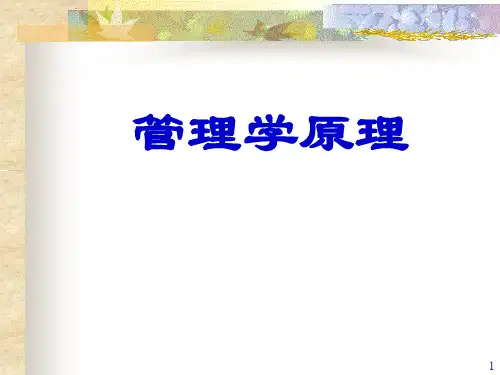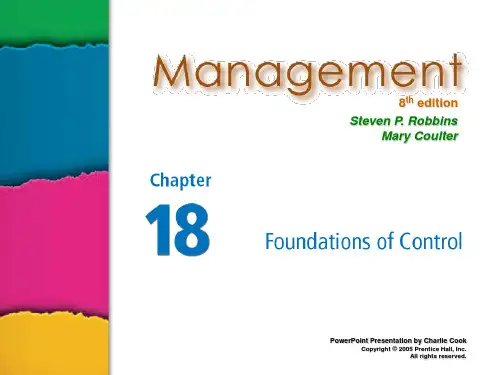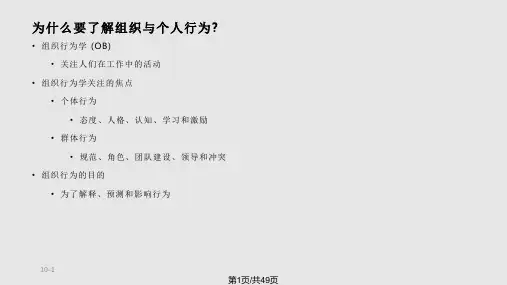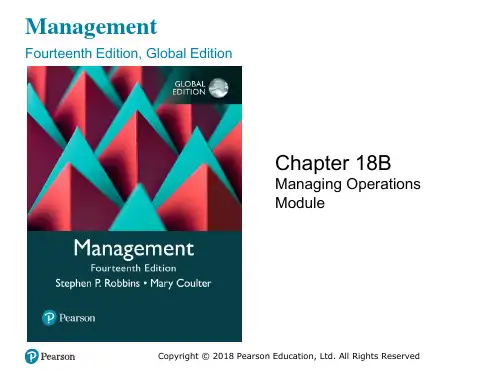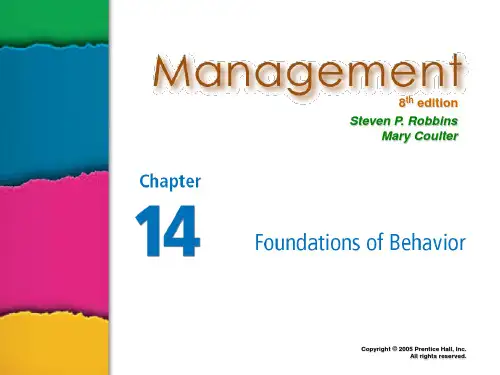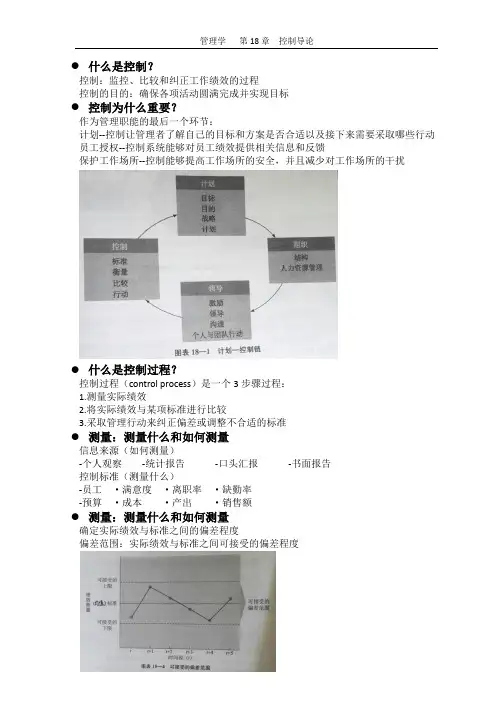- 1、下载文档前请自行甄别文档内容的完整性,平台不提供额外的编辑、内容补充、找答案等附加服务。
- 2、"仅部分预览"的文档,不可在线预览部分如存在完整性等问题,可反馈申请退款(可完整预览的文档不适用该条件!)。
- 3、如文档侵犯您的权益,请联系客服反馈,我们会尽快为您处理(人工客服工作时间:9:00-18:30)。
• Organizational commitment – the degree to which an employee identifies with a particular organization and its goals and wishes to maintain membership in that organization.
COPYRIGHT © 2016 PEARSON EDUCATION, INC.
15 - 3
EXHIBIT 15-1 ORGANIZATION AS ICEBERG
COPYRIGHT © 2016 PEARSON EDUCATION, INC.
15 - 4
FOCUS OF ORGANIZATIONAL BEHAVIOR
15 - 2
FOCUS AND GOALS OF ORGANIZATIONAL BEHAVIOR
Behavior – the actions of people. • Organizational behavior – the study of the actions of people at work.
15 - 6
GOALS OF ORGANIZATIONAL BEHAVIOR (CONT.)
• Organizational Citizenship Behavior (OCB) – discretionary behavior that is not part of an employee’s formal job requirements, but which promotes the effective functioning of the organization.
• Workplace misbehavior – any intentional employee behavior that is potentially damaging to the organization or to individuals within the organization.
3. Organizational aspects including structure, culture, and human resource policies and practices.
COPYRIGHT © 2016 PEARSON EDUCATION, INC.
15 - 5
GOALS OF ORGANIZATIONAL BEHAVIOR
15 - 11
JOB INVOLVEMENT AND ORGANIZATIONAL COMMITMENT
• Job involvement – the degree to which an employee identifies with his or her job, actively participates in it, and considers his or her job performance to be important to selfworth.
behavior. ▪ Develop your skill at shaping behavior. 6. Discuss contemporary issues in organizational behavior.
COPYRIGHT © 2016 PEARSON EDUCATION, INC.
COPYRIGHT © 2016 PEARSON EDUCATION, INC.
15 - 12
JOB INVOLVEMENT AND ORGANIZATIONAL COMMITMENT (CONT.)
• Perceived organizational support – employees’ general belief that their organization values their contribution and cares about their well-being.
2. Explain the role that attitudes play in job performance. 3. Describe different personality theories.
▪ Know how to be more self-aware. 4. Describe perception and factors that influence it. 5. Discuss learning theories and their relevance in shaping
• Behavioral component – that part of an attitude that refers to an intention to behave in a certain way toward someone or something.
COPYRIGHT © 2016 PEARSON EDUCATION, INC.
The goals of OB are to explain, predict, and influence behaviors such as
– Employee productivity – a performance measure of both efficiency and effectiveness.
• Cognitive component – that part of an attitude that’s made up of the beliefs, opinions, knowledge, or information held by a person.
• Affective component – that part of an attitude that’s the emotional or feeling part.
• Job satisfaction is linked to productivity, absenteeism, turnover, customer satisfaction, OCB, and workplace misbehavior.
COPYRIGHT © 2016 PEARSON EDUCATION, INC.
• Job satisfaction – an employee’s general attitude toward his or her job.
COPYRIGHT © 2016 PEARSON EDUCATION, INC.
15 - 7
GOALS OF ORGANIZATIONAL BEHAVIOR (CONT.)
COPYRIGHT © 2016 PEARSON EDUCATION, INC.
15 - 17
MBTI®
MBTI®- a popular personality-assessment instrument. • Classifies individuals as exhibiting a
preference in four categories:
UNDERSTANDING AND MANAGING INDIVIDUAL BEHAVIOR
15
COPYRIGHT © 2016 PEARSON EDUCATION, INC.
15 - 1
LEARNING OBJECTIVES
1. Identify the focus and goals of individual behavior within organizations.
Organizational behavior focuses on three major areas:
1. Individual behavior including attitudes, personality, perception, learning, and motivation.
2. Group behavior including norms, roles, team building, leadership, and conflict.
• Attitude surveys – surveys that elicit responses from employees through questions about how they feel about their jobs, work groups, supervisors, or the organization.
1. Extraversion or introversion (E or I) 2. Sensing or intuition (S or N) 3. Thinking or feeling (T or F) 4. Judging or perceiving (J or P).
COPYRIGHT © 2016 PEARSON EDUCATION, INC.
15 - 13
EMPLOYEE ENGAGEMENT
Employee engagement – when employees are connected to, satisfied with, and enthusiastic about their jobs.
COPYRIGHT © 2016 PEARSON EDUCATION, INC.
15 - 14
COGNITIVE DISSONANCE THEORY
• Cognitive dissonance – any incompatibility or inconsistency between attitudes or between behavior and attitudes.
COPYRIGHT © 2016 PEARSON EDUCATION, INC.
15 - 8
